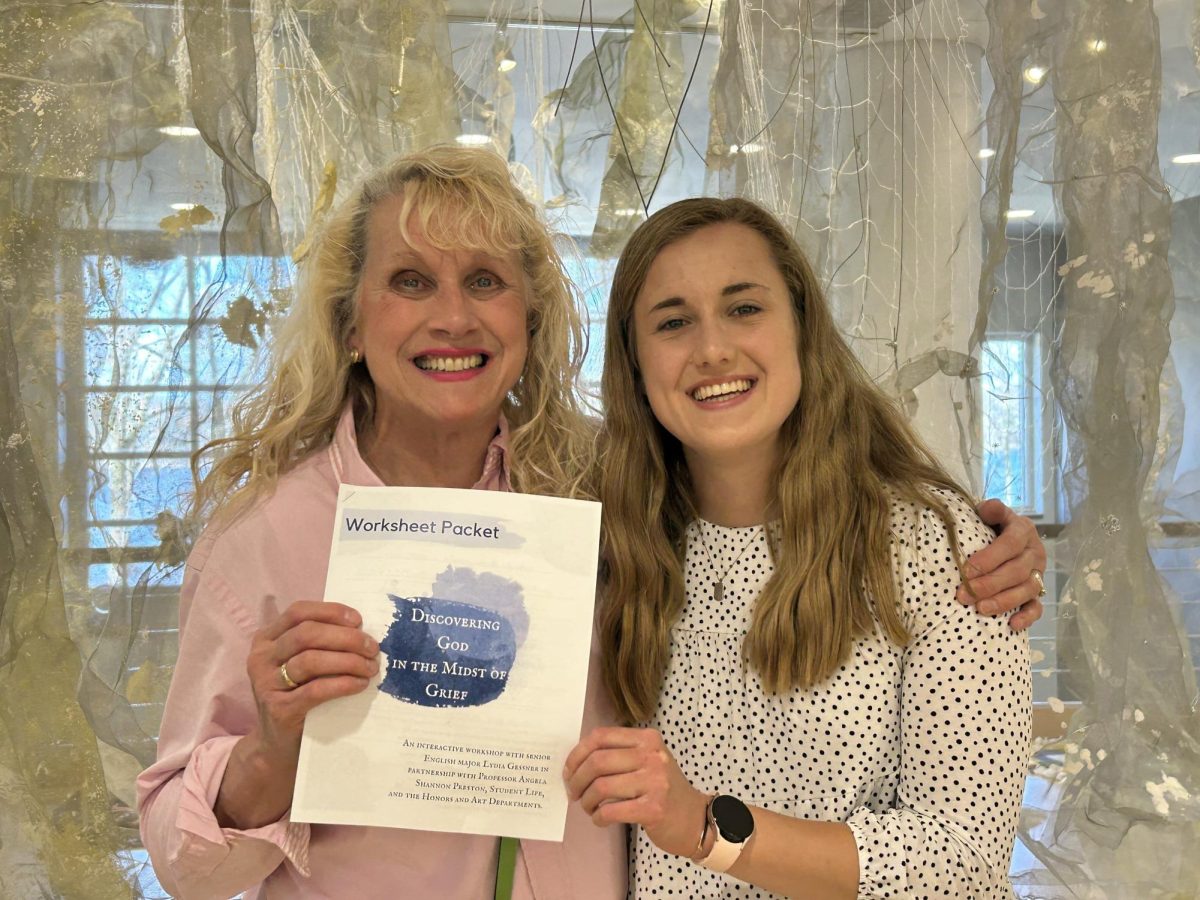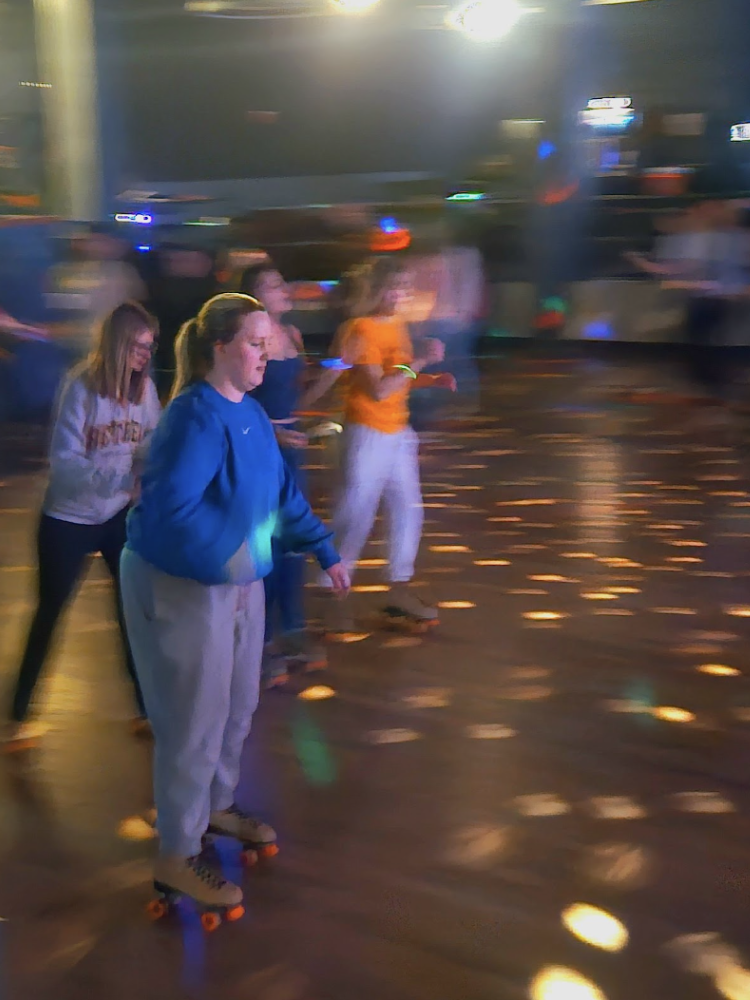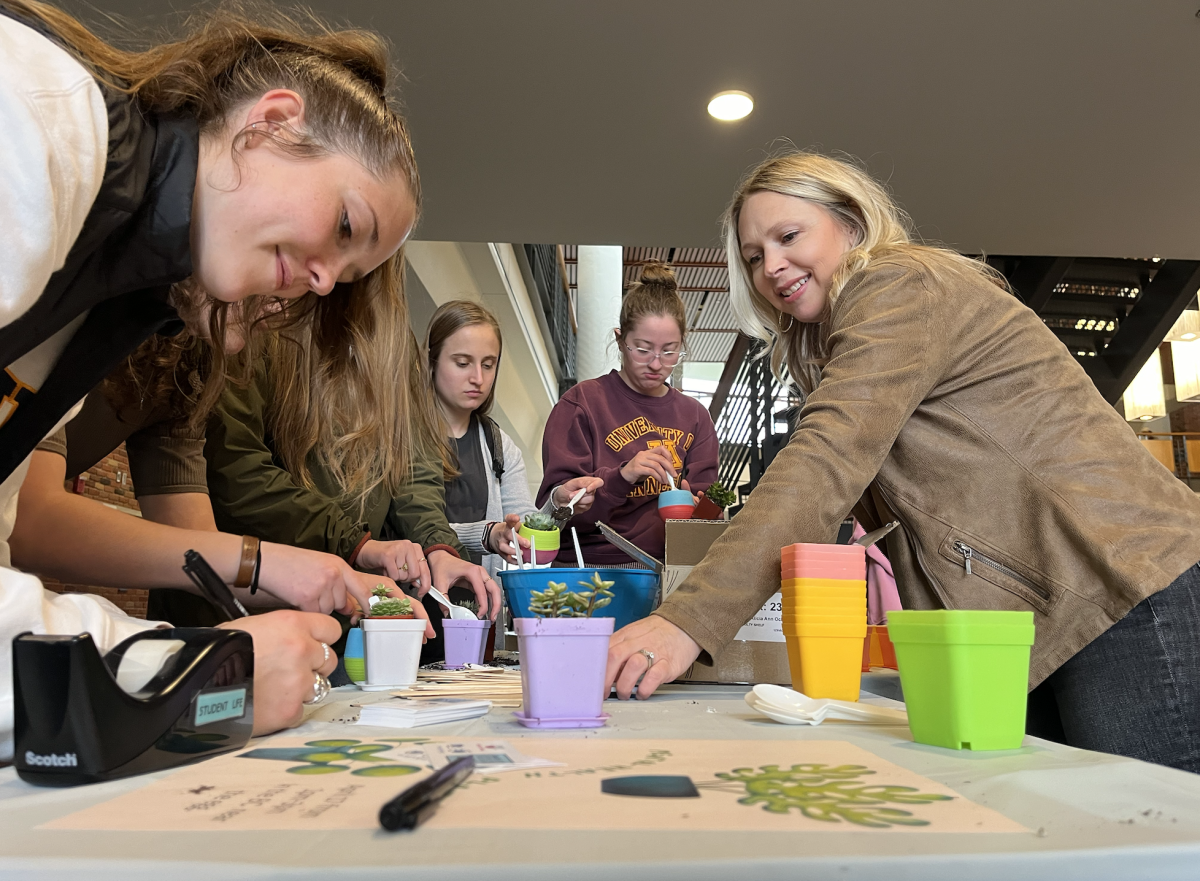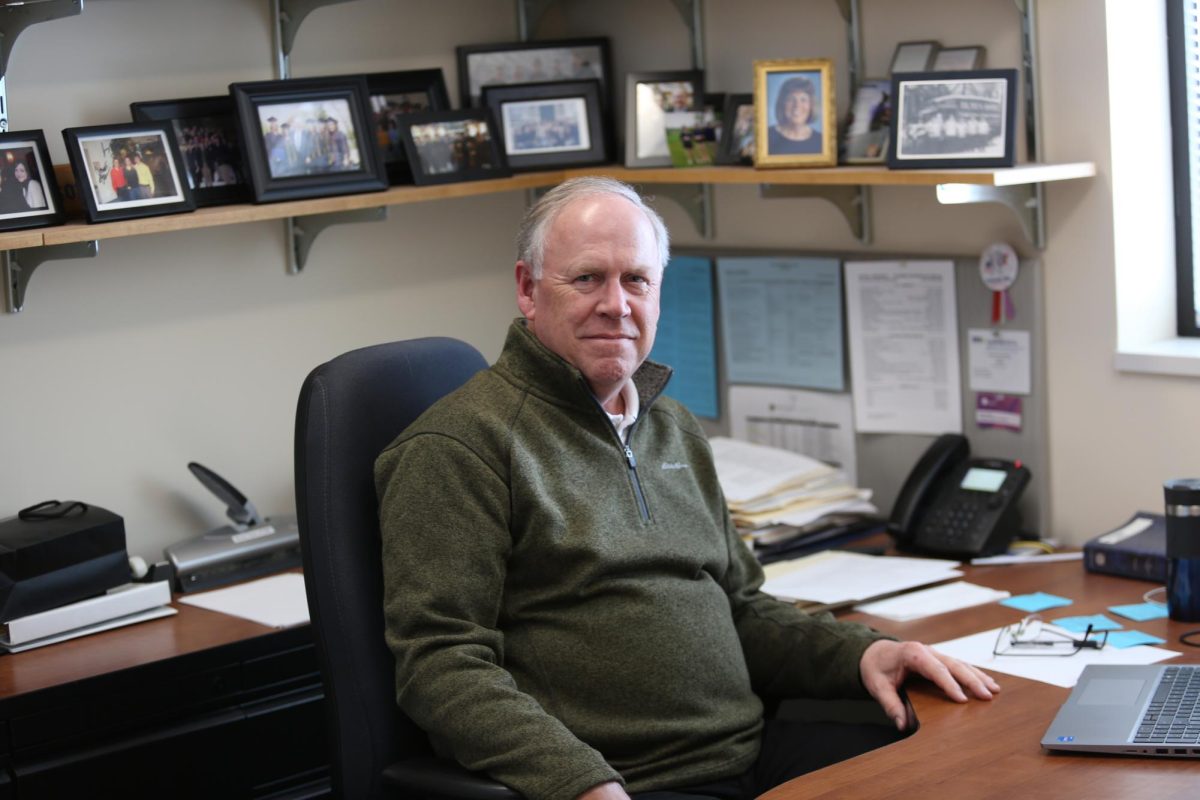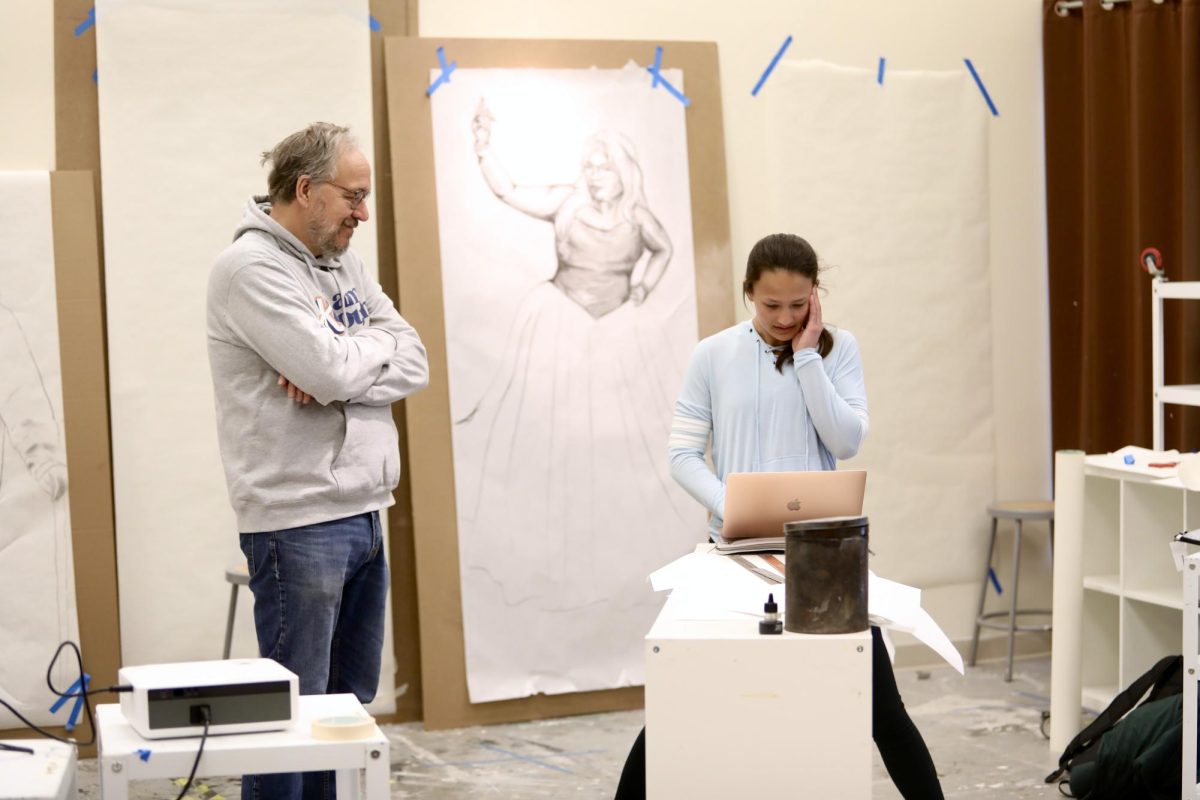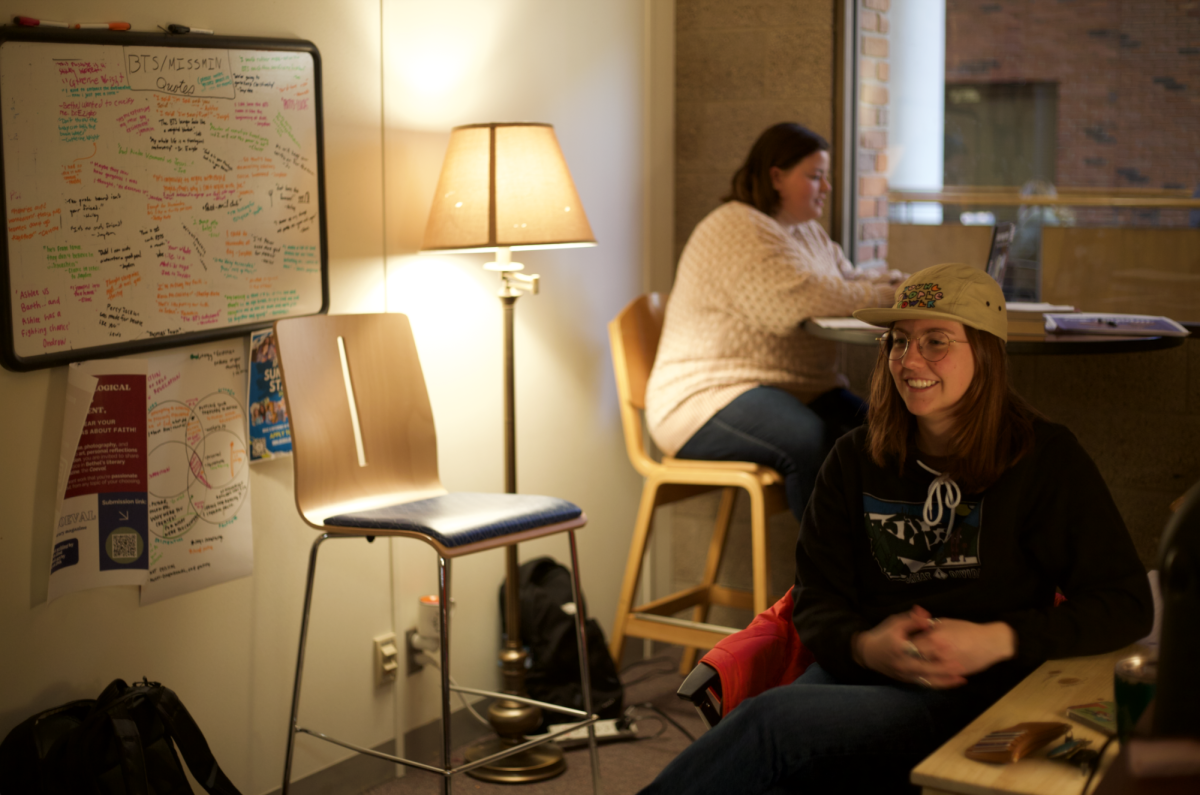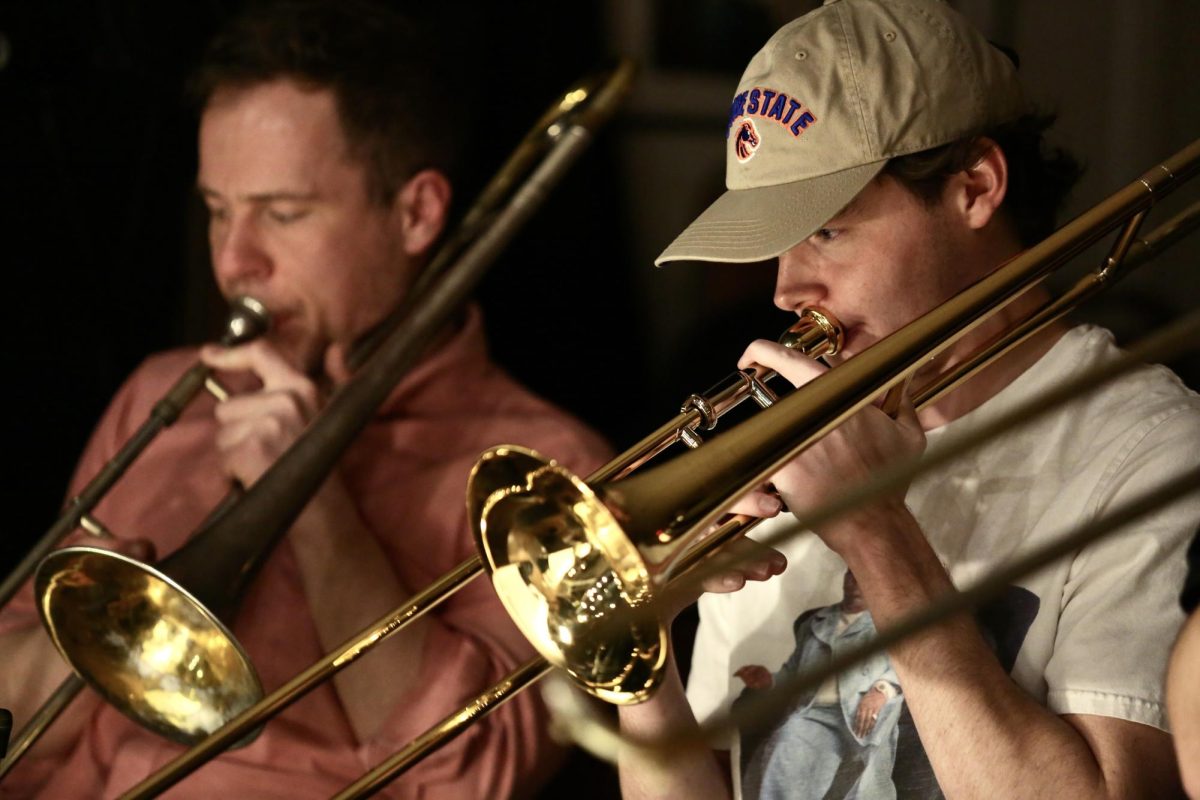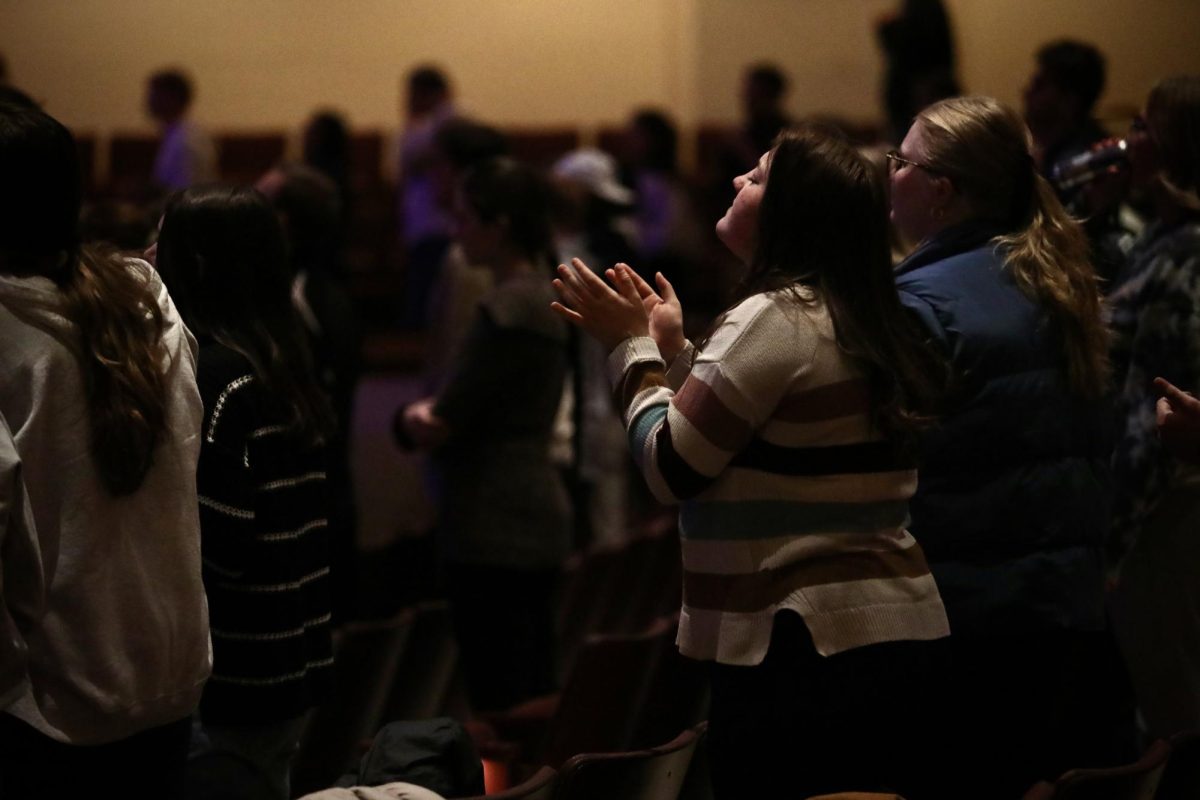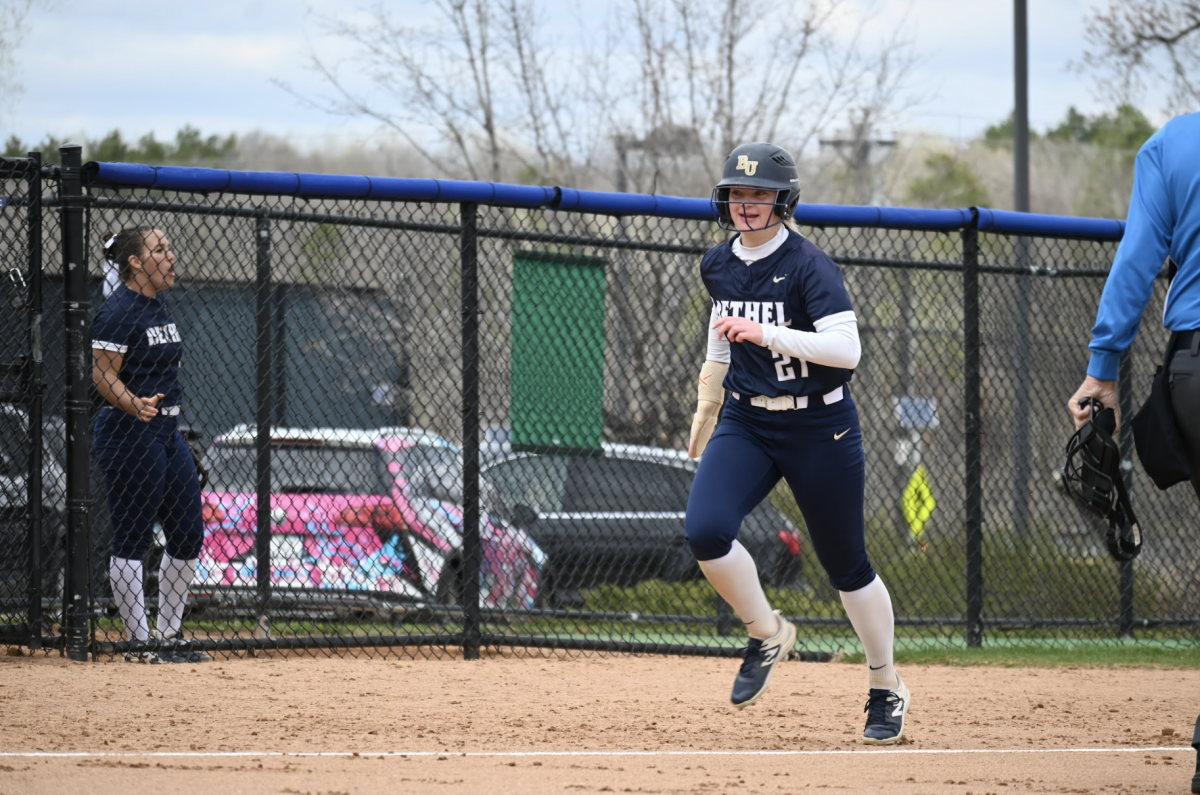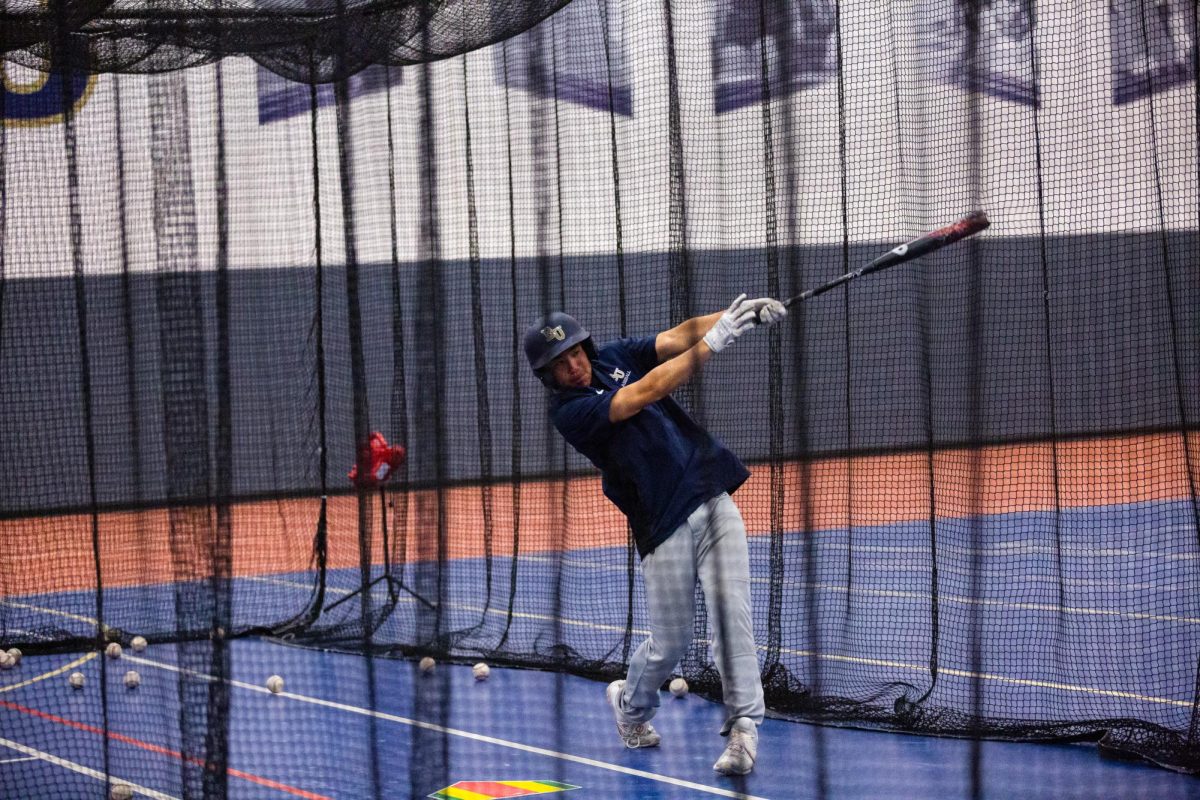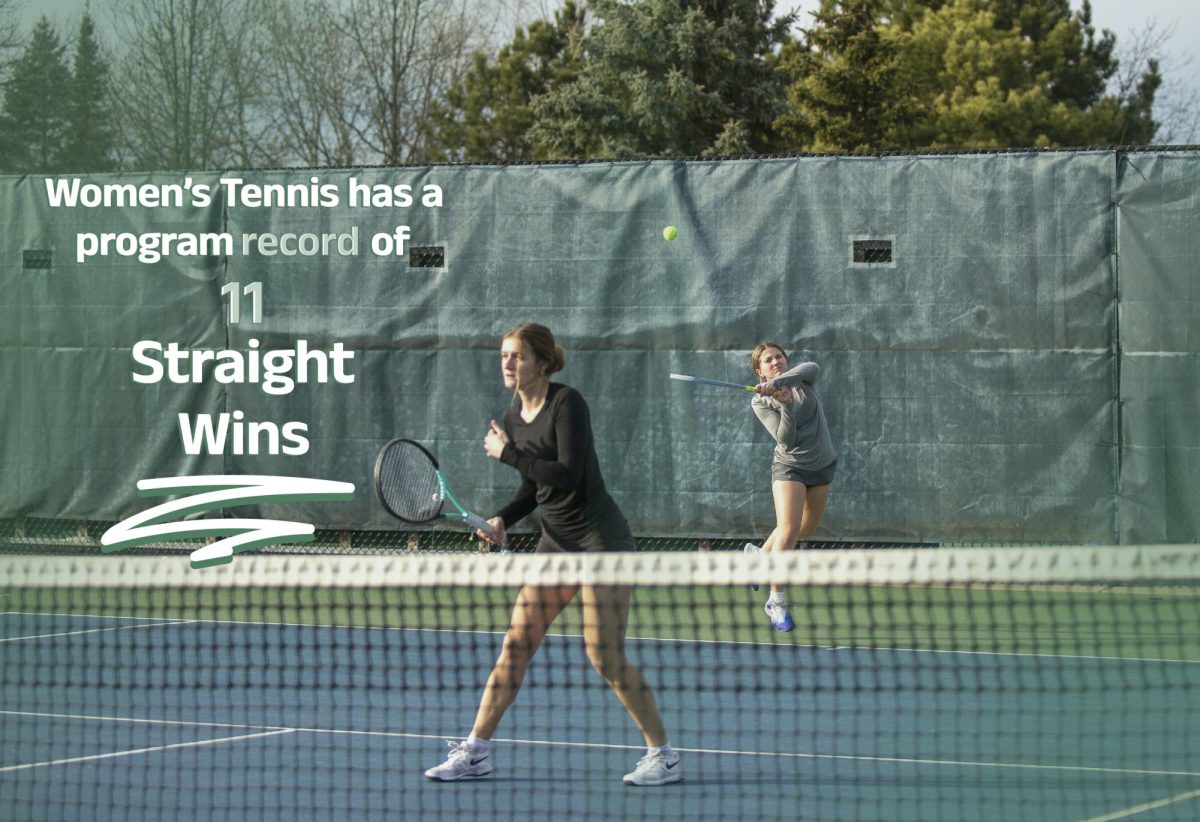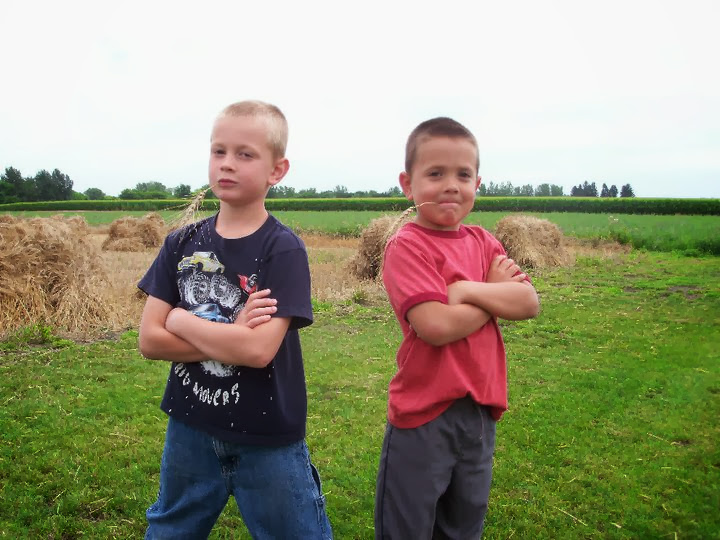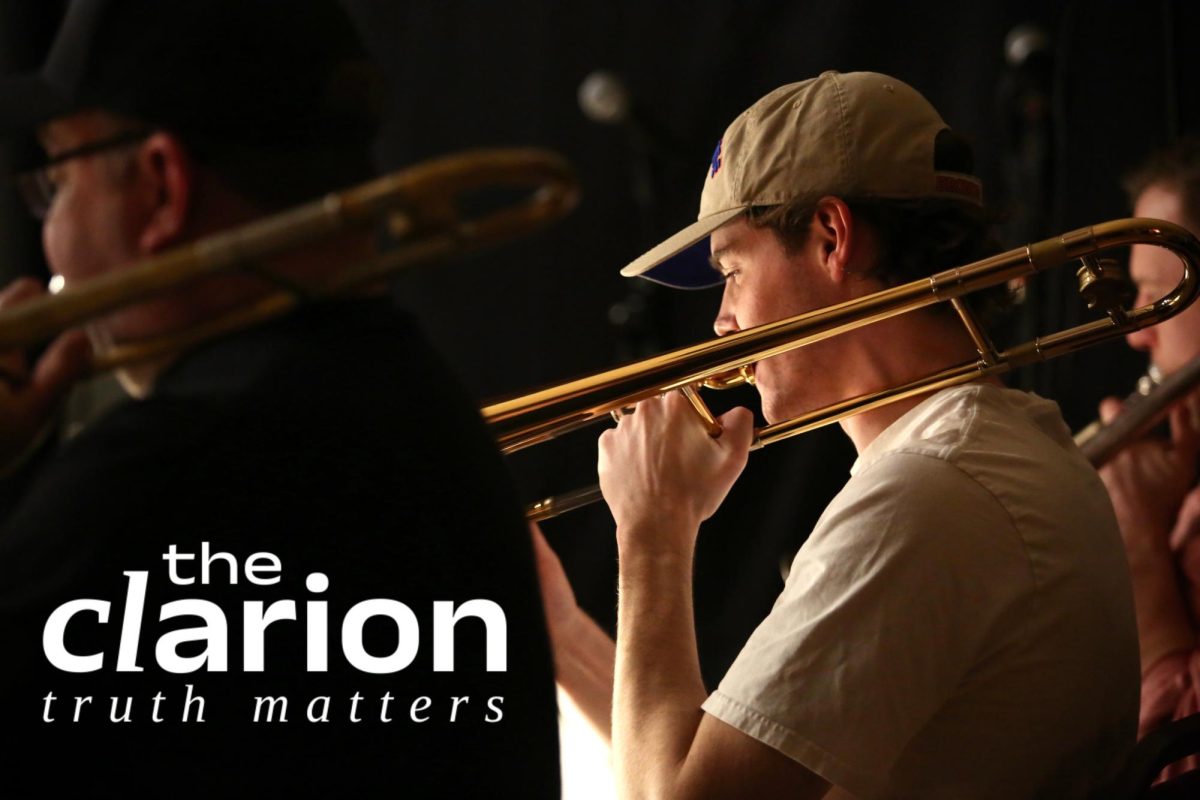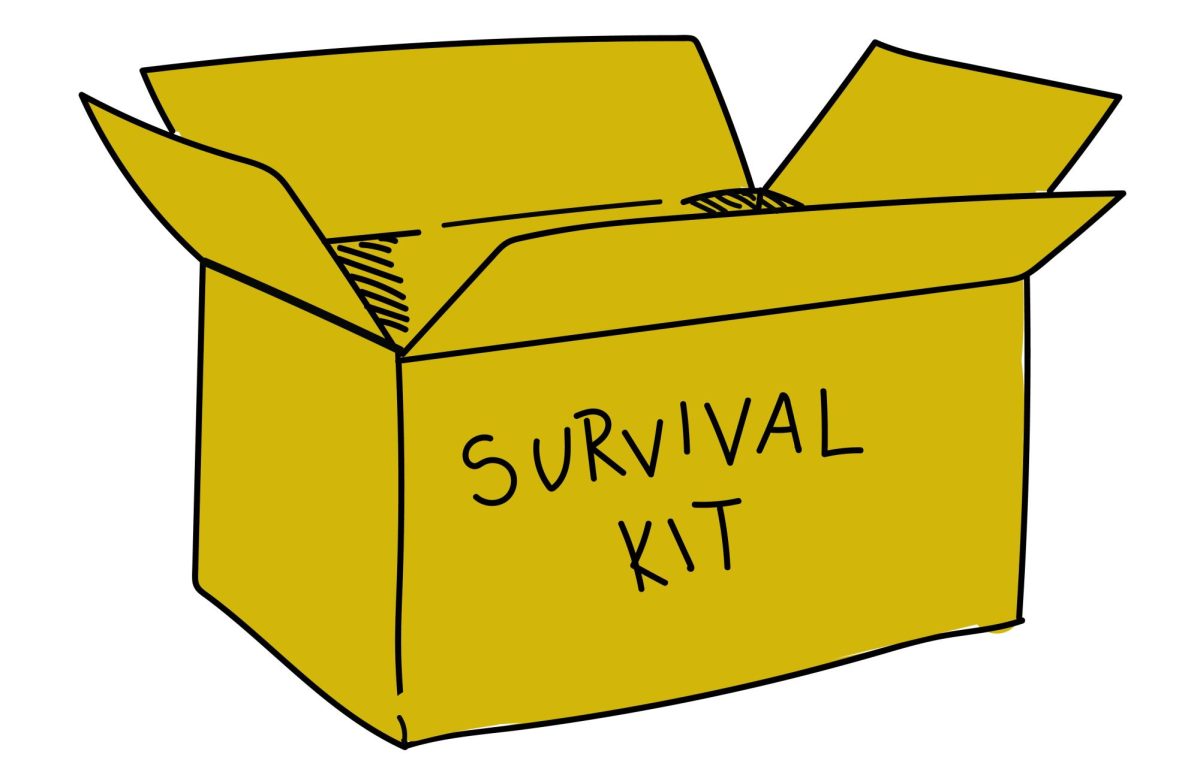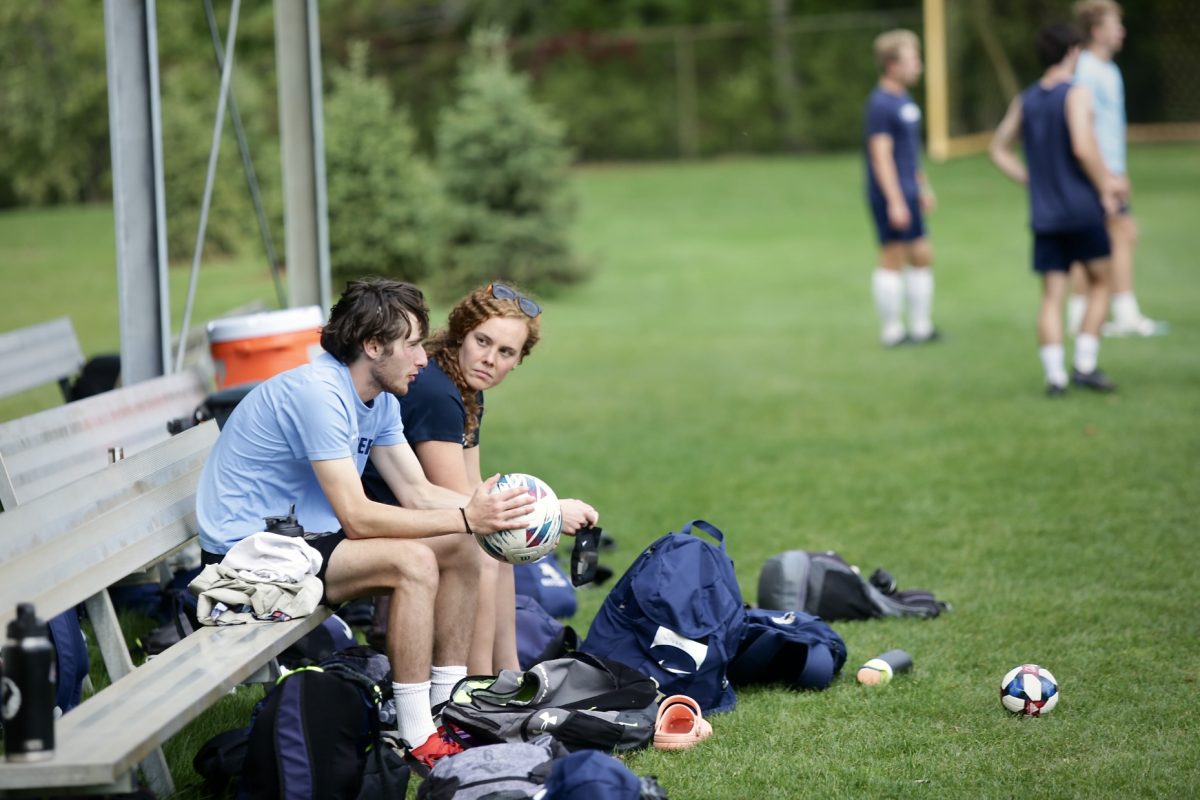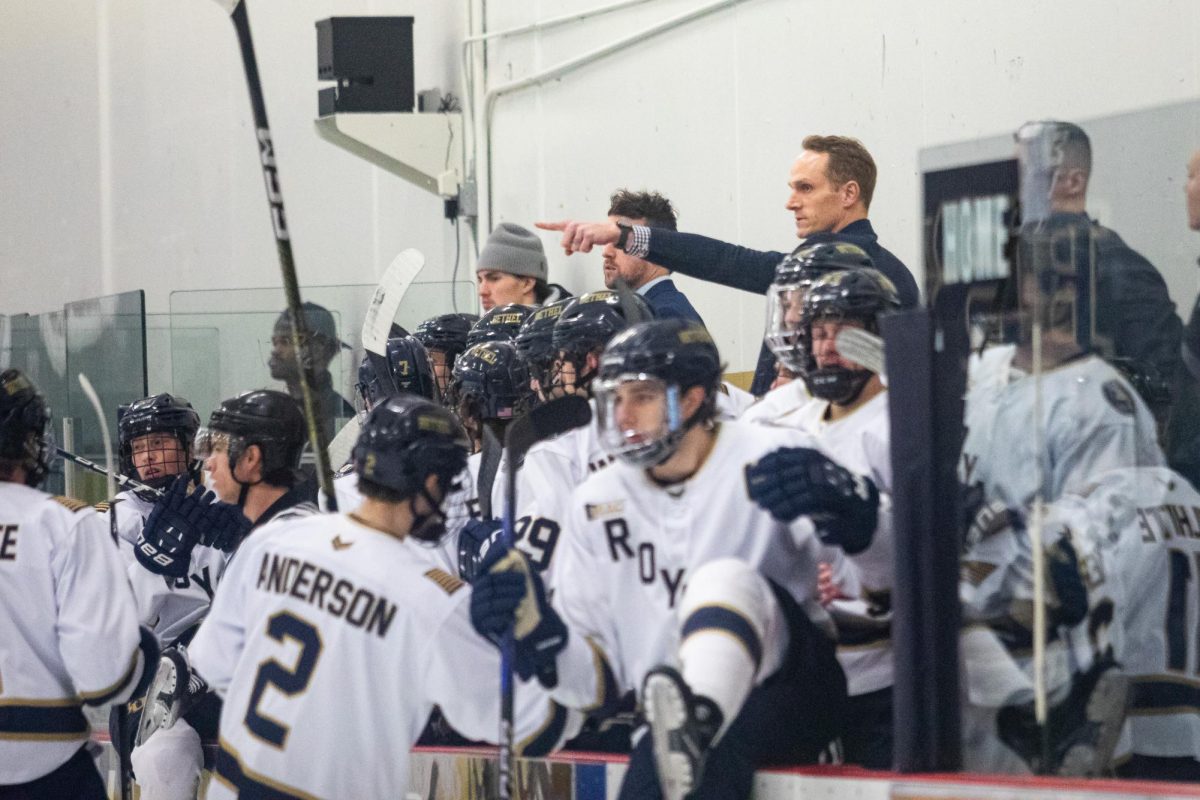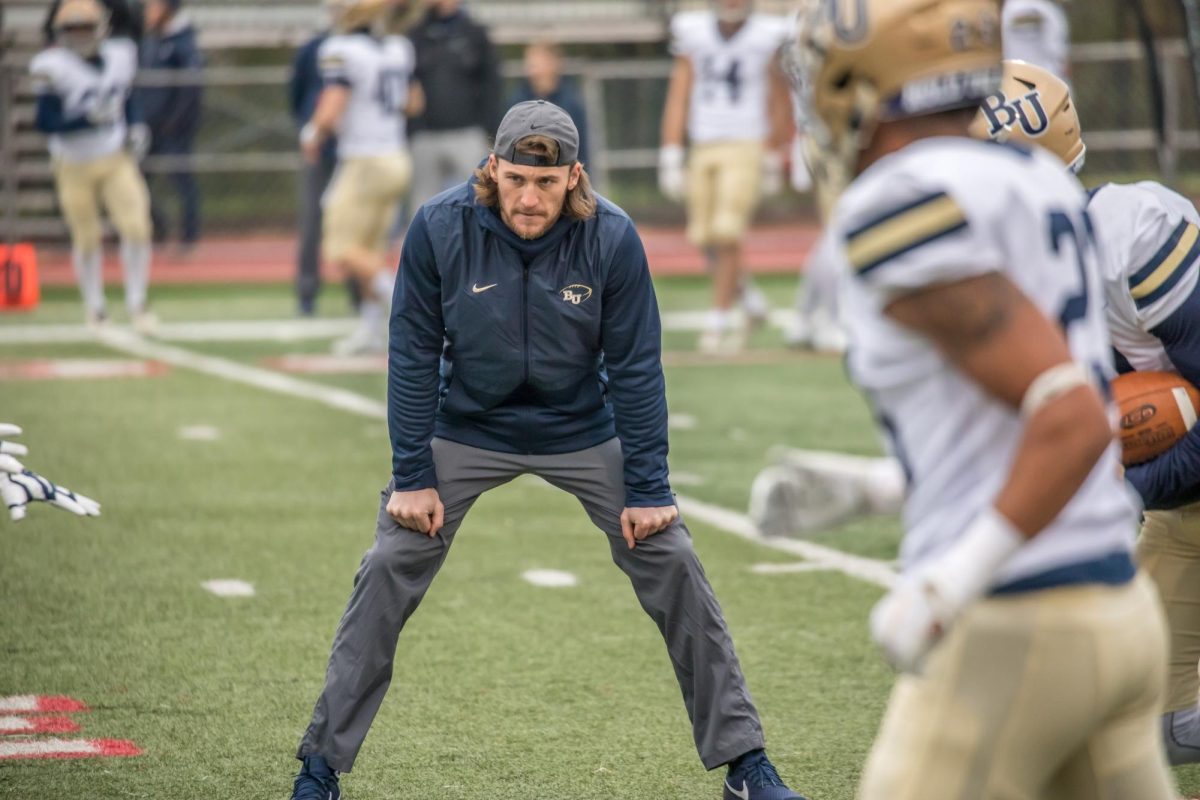Sophomore running back David Geebli caught a pass from senior quarterback George Bolt with only one minute and 3o seconds left in the second quarter. It was Bethel University’s first home football game against Wartburg College Sept. 9. Geebli remembered feeling confident about the start to the season.
But at one minute and 21 seconds, he was on the ground.
“This is not what we want to see. Geebli down,” the Royals media announcer said during the live coverage of the game. “We’re hoping this is a [leg] cramp situation.”
Geebli, on the 30 yard line, tried to pull himself out of the tackle pile on his hands, but his right leg dragged behind him. He got about three feet away from the other players when he suddenly collapsed face-first onto the turf. His hand went down to his thigh but quickly recoiled back to his head as he writhed on the field, his back rapidly rising and falling as he cried. Some of his teammates hesitantly approached him but backed away when Director of Athletic Training Services and the football team’s athletic trainer Justin Byers knelt down to Geebli and offered immediate medical assistance, not yet knowing the extent of his injury.
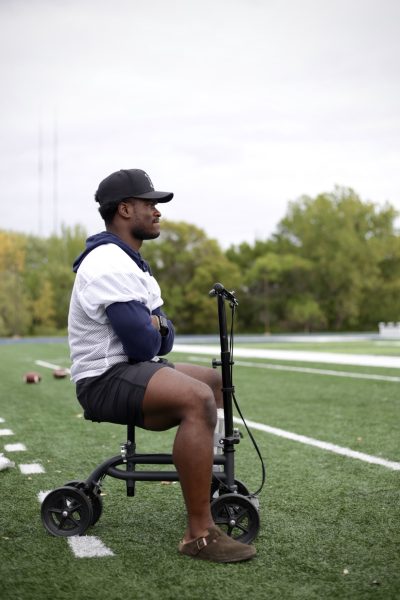
Bethel and Wartburg players and coaches took a knee on the sidelines. The student section hushed, seemingly holding a collective breath as a stretcher was brought out. Geebli was carefully lifted onto it, a white sheet thrown over his right leg to cover the protruding bone. Rolling out of the stadium, his hands covered his eyes and his chest heaved with sobs. In the amount of time it took to transport Geebli from the field to the ambulance, Byers had already called ahead to the emergency room to alert them of Geebli’s expected arrival and offer a brief synopsis of the injury.
“I got tackled and felt my ankle snap… I knew I did something bad,” Geebli said. “I was on the ground and looked at my ankle, it was all over the place. I started crying because I just knew it was game over.”
At the hospital, his leg was set back into place and he was scheduled for surgery the following Monday to repair his broken fibula. Geebli’s season was over before halftime of the first game of the 2023 season.
Although athletic trainers and players alike take preventative steps, season-ending injuries are still a risk for athletes. Geebli isn’t the only one already out for the season.
More than a week before Geebli’s first-game injury was Bethel’s first volleyball game of the season. About five points into the game against the University of Northwestern, outside hitter Grace Solberg was out for the season.
Solberg was playing the first row of the court and started backpedaling when she noticed the volleyball unexpectedly coming toward her. In an effort to get the ball, she pivoted her body, but her right foot stayed behind.
“My foot stuck to the ground but the rest of my body didn’t. It turned. That meant it was a clean tear to my ACL,” Solberg said. “I was immediately on the ground and I knew right away [that] something snapped. I could hear it.”
The gym went quiet when she fell. The team’s athletic trainer, Amy Reimer, came to Solberg and had to instruct her to breathe — Solberg had gone into shock. After a few minutes she was able to stand up and walk to the trainer’s bench, where Remier did an immediate medical check to look for any visible signs of injuries like a concussion or a laceration.
Despite the pain she was feeling, Solberg didn’t think she had torn her ACL. The adrenaline in Solberg’s body convinced her that nothing was wrong and she asked to go back in the game to play. A visit to the physician’s assistant offered an initial diagnosis of a minor patella tendon injury that would only need a few weeks to heal, but the eventual scans of her leg told a different story: a torn ACL with a 10 to 12 month recovery time.
Geebli and Solberg both have a long road of rehabilitation ahead of them facilitated by the Royals’ athletic training team.
Bethel hires its athletic trainers from Twin Cities Orthopedics, and they are responsible for preventing as many injuries as possible as well as treating the ones that unexpectedly still occur — like Geebli’s and Solberg’s. While injuries like theirs are largely unpredictable, Annie Hinnenkamp, one of Bethel’s five trainers, still does everything she can to ensure the health of her teams.
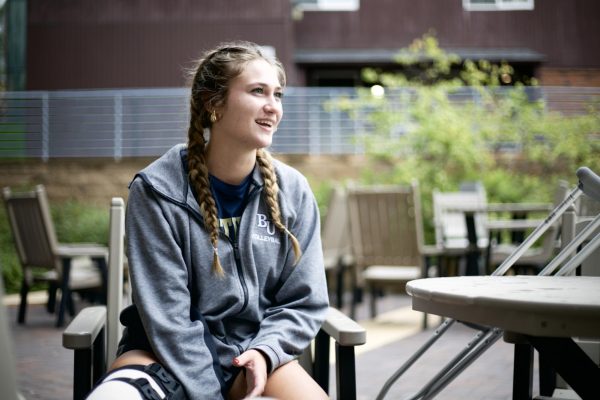
“I’m a firm believer that healthy teams are successful teams,” Hinnenkamp said, who works with the men’s soccer, hockey and golf teams.
Hinnenkamp listed additional depth to rosters, increased self-confidence among players and boosted mental capacity as the benefits to maintaining a healthy team.
“As soon as you have all that together, guys can just go out and play freely,” Hinnenkamp said. “If they’re playing free they’re having fun, which means [a] higher chance of winning.”
Injury prevention is a crucial aspect to forming a healthy, successful team. But when injuries still inevitably happen, Byers also considers the mental health of an athlete. Not only is the athlete’s physical safety at risk, but the emotional and psychological side can take a toll on them as well.
“Sometimes I feel like the Grim Reaper,” Byers said. “I’m always delivering bad news to the coaches and players.”
Since serious injuries take athletes out of regular team activities, the player may begin to lose their sense of belonging among their teammates. However, Hinnenkamp has developed a way to integrate rehabilitating athletes with their teammates. Utilizing the weight room as a space to rehabilitate while the rest of the team does its workout can positively impact the athlete’s mental health.
“There’s such a team component to sports and if you’re still in [the weight room] working hard with your team, that’s huge,” Hinnenkamp said.
This allows for the player to continue connecting with their teammates and avoid missing any time as the team bonds over hard work. Geebli added that he received immense support from his teammates and friends, which has helped his recovery process.
“Everybody, basically, on the team reached out and while I was at the hospital, four coaches went there [to visit me], and that meant a lot,” Geebli said. “Throughout being at home and stuff the team has been calling and checking up on me. It shows how much everyone cares about each other.”
While Solberg expressed a very similar story of support from her teammates, coaches and family, she also addressed the mental toll her season-ending injury has had.
“I’ve had to say no to a lot of things… it can be very isolating,” Solberg said. “Saying no to little things adds up, and it eventually feels like I’m doing it alone or doing recovery alone, even though I know that’s not true. I’m just missing out on a lot of things right now.”
—
Byers described the effect injuries can have on a player’s identity as a loss to a part of themselves. When athletes dedicate large portions of their lives to their sports, losing the ability to play, even if for just a short period of time, feels devastating.
Both athletes said the recovery process will be long — Geebli’s about three months to get back to his normal level of activity and Solberg’s at least nine months before she even begins to simply pass the volleyball around, let alone do drills.
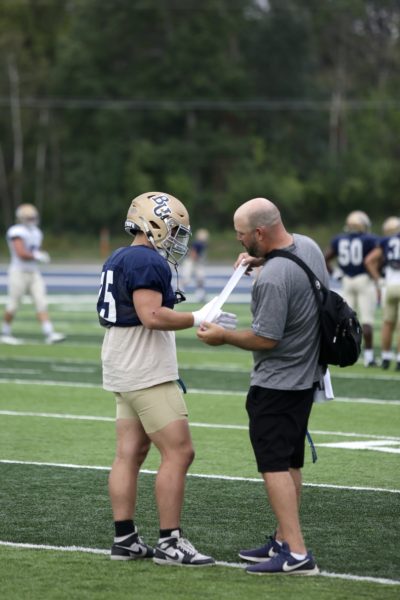
Despite this, both athletes are still an active part of their teams and stay committed to their recovery. The Bethel athletic trainers will be there during the recovery process to help ensure Geebli and Solberg can return to their sports in the best shape possible.
Hinnenkamp has found positives and a love for her job among the more negative side of athletics. Since starting at Bethel, she says the number of injured athletes she sees has dwindled each year — “an athletic trainer’s dream.” Throughout those six years, she’s also bonded with the athletes she treats. By this point, Hinnenkamp considers them family.
In the fall, both Byers and Hinnenkamp can be seen on the football and soccer fields, respectively, at every practice and game. Byers, with his signature black fanny pack slung over his left shoulder, wanders from player to player taping wrists, putting bandages on scraped elbows or conducting a range of motion check for a player’s shoulder or hip. Hinnenkamp sits on the Bethel men’s soccer team’s bench with acute attention for her players, ready to administer aid at the first sign of discomfort or pain in an athlete.
“I’m so blessed. I have the best job in the world,” Hinnenkamp said.
While the football and volleyball season are still active, Geebli and Solberg have had to adapt to a new routine of watching from the sidelines. Geebli is often seen rolling around the football field during practice on a knee scooter, still involved with the team, just not in the starting lineup. Solberg uses the volleyball practice time as her physical therapy and rehab appointment most days, but goes with the team to their matches to cheer them on.
Both athletes will spend the upcoming months in recovery and rehabilitation inside Bethel’s training facility with their trainers and outside with individual trainers. When the 2024 season officially begins next fall, Geebli and Solberg have high hopes that they’ll be right back on the field and court playing as they once did.

